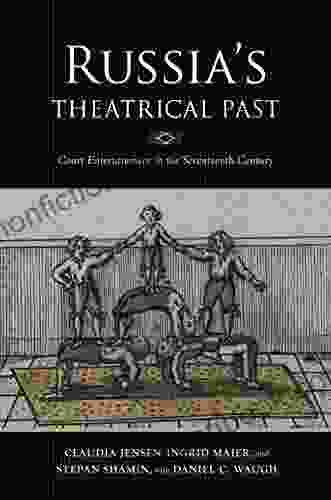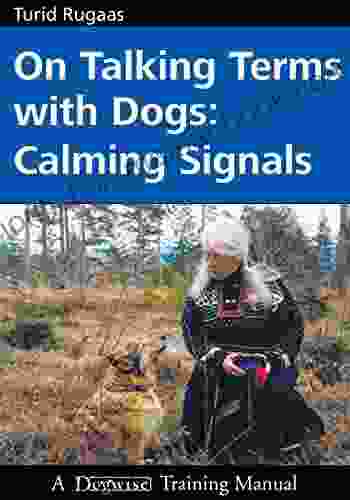Working With Time in Qualitative Research: A Comprehensive Guide

Time is a fundamental aspect of human experience, and it plays a crucial role in qualitative research. Researchers working with qualitative data often encounter temporal dimensions, such as the sequencing of events, the duration of experiences, and the interplay between past, present, and future. Understanding and analyzing time in qualitative research is essential for researchers to gain a deeper understanding of the social world and the experiences of individuals.
5 out of 5
| Language | : | English |
| File size | : | 7673 KB |
| Text-to-Speech | : | Enabled |
| Enhanced typesetting | : | Enabled |
| Word Wise | : | Enabled |
| Print length | : | 248 pages |
| Screen Reader | : | Supported |
This guide provides a comprehensive overview of working with time in qualitative research. It covers key concepts, methods, and strategies for researchers to effectively analyze and interpret temporal data.
Key Concepts
Temporality: Temporality refers to the ways in which time is experienced, understood, and represented. In qualitative research, researchers examine how individuals perceive and interact with time, and how they construct narratives and meanings around their temporal experiences.
Longitudinal Studies: Longitudinal studies follow participants over an extended period of time, allowing researchers to observe changes and developments over time. These studies are particularly useful for understanding how individuals' experiences and perspectives change over time.
Narrative Analysis: Narrative analysis focuses on the ways in which individuals construct and share stories about their lives and experiences. Researchers using narrative analysis examine the temporal structure of narratives, the ways in which time is used to shape and give meaning to stories, and how narratives are influenced by the social and cultural context.
Grounded Theory: Grounded theory is an inductive approach to qualitative research that involves developing theories based on the analysis of data collected from participants. Researchers using grounded theory often pay close attention to the temporal dimension of data, as it can provide insights into the processes and mechanisms that shape social phenomena.
Phenomenology: Phenomenology is a qualitative research approach that focuses on understanding the lived experiences of individuals. Researchers using phenomenology aim to capture the temporal flow of experiences and the ways in which individuals make sense of their temporal world.
Methods
Timelines and Chronologies: Timelines and chronologies are visual representations of events and experiences arranged in sequential order. Researchers can use timelines and chronologies to map out the temporal dimensions of data, identify patterns and relationships, and compare different accounts of events.
Process Tracing: Process tracing involves tracing the development of a phenomenon or event over time. Researchers using process tracing collect data from multiple sources and time points to reconstruct the sequence of events and identify the factors that influence outcomes.
Discourse Analysis: Discourse analysis involves analyzing the language used to talk about time. Researchers using discourse analysis examine how individuals use linguistic markers, such as tenses and temporal adverbs, to construct narratives and shape meanings around time.
Participant Observation: Participant observation involves observing individuals in their natural settings over a period of time. Researchers using participant observation can observe how individuals experience and interact with time in their daily lives.
Interviews: Interviews can be used to collect data about individuals' temporal experiences. Researchers can ask participants about their perceptions of time, their experiences of change over time, and the ways in which time shapes their lives.
Strategies for Analysis
Identify Temporal Patterns: Researchers should identify temporal patterns in their data, such as the frequency of events, the duration of experiences, and the sequencing of events. These patterns can provide insights into the ways in which time is experienced and organized.
Examine Time as a Social Construct: Researchers should examine how time is socially constructed and how it shapes individuals' experiences. This involves examining the ways in which cultural norms, social institutions, and power relations influence temporal experiences.
Consider the Researcher's Temporal Position: Researchers should be aware of their own temporal position and how it influences their interpretation of data. Researchers' assumptions and biases about time can shape the ways in which they collect and analyze data.
Use Multiple Methods: Researchers should use multiple methods to collect and analyze data about time. This can help to triangulate findings and gain a more comprehensive understanding of the temporal dimension of experiences.
Working with time in qualitative research requires a nuanced understanding of the complexities of temporal experiences. Researchers must be aware of the key concepts, methods, and strategies involved in analyzing and interpreting time in their data. By carefully considering the temporal dimension of their research, researchers can gain a deeper understanding of the social world and the experiences of individuals.
5 out of 5
| Language | : | English |
| File size | : | 7673 KB |
| Text-to-Speech | : | Enabled |
| Enhanced typesetting | : | Enabled |
| Word Wise | : | Enabled |
| Print length | : | 248 pages |
| Screen Reader | : | Supported |
Do you want to contribute by writing guest posts on this blog?
Please contact us and send us a resume of previous articles that you have written.
 Top Book
Top Book Novel
Novel Fiction
Fiction Nonfiction
Nonfiction Literature
Literature Paperback
Paperback Hardcover
Hardcover E-book
E-book Audiobook
Audiobook Bestseller
Bestseller Classic
Classic Mystery
Mystery Thriller
Thriller Romance
Romance Fantasy
Fantasy Science Fiction
Science Fiction Biography
Biography Memoir
Memoir Autobiography
Autobiography Poetry
Poetry Drama
Drama Historical Fiction
Historical Fiction Self-help
Self-help Young Adult
Young Adult Childrens Books
Childrens Books Graphic Novel
Graphic Novel Anthology
Anthology Series
Series Encyclopedia
Encyclopedia Reference
Reference Guidebook
Guidebook Textbook
Textbook Workbook
Workbook Journal
Journal Diary
Diary Manuscript
Manuscript Folio
Folio Pulp Fiction
Pulp Fiction Short Stories
Short Stories Fairy Tales
Fairy Tales Fables
Fables Mythology
Mythology Philosophy
Philosophy Religion
Religion Spirituality
Spirituality Essays
Essays Critique
Critique Commentary
Commentary Glossary
Glossary Bibliography
Bibliography Index
Index Table of Contents
Table of Contents Preface
Preface Introduction
Introduction Foreword
Foreword Afterword
Afterword Appendices
Appendices Annotations
Annotations Footnotes
Footnotes Epilogue
Epilogue Prologue
Prologue Daniele Benedettelli
Daniele Benedettelli Mayank Mishra
Mayank Mishra Brandon Santiago
Brandon Santiago C Fred Bergsten
C Fred Bergsten Margo Jefferson
Margo Jefferson D H Lawrence
D H Lawrence Bobby Adair
Bobby Adair Timothy V Rasinski
Timothy V Rasinski Yuri Matsko
Yuri Matsko Virginia Grose
Virginia Grose Gina Robinson
Gina Robinson Heike Oevermann
Heike Oevermann Mark Berends
Mark Berends Gulshan Yadav
Gulshan Yadav Robert Samuels
Robert Samuels Jeremy Tyson
Jeremy Tyson Michelle Ray
Michelle Ray Peter Frase
Peter Frase Odd Dot
Odd Dot Ronnee Yashon
Ronnee Yashon
Light bulbAdvertise smarter! Our strategic ad space ensures maximum exposure. Reserve your spot today!
 Fernando PessoaFollow ·11.6k
Fernando PessoaFollow ·11.6k Jerome BlairFollow ·17k
Jerome BlairFollow ·17k Sidney CoxFollow ·10.5k
Sidney CoxFollow ·10.5k Will WardFollow ·18.3k
Will WardFollow ·18.3k Miguel NelsonFollow ·8.2k
Miguel NelsonFollow ·8.2k Nikolai GogolFollow ·13k
Nikolai GogolFollow ·13k Emmett MitchellFollow ·4k
Emmett MitchellFollow ·4k Harold BlairFollow ·16.9k
Harold BlairFollow ·16.9k

 Steve Carter
Steve CarterUnveiling the Rich Theatrical Tapestry of Russia: A...
Origins and Early...

 Frank Butler
Frank ButlerOn Talking Terms With Dogs: Calming Signals and the...
For centuries, dogs have...

 Leo Tolstoy
Leo TolstoyThe Inside Guide to Applying and Succeeding in...
Applying to...

 Cole Powell
Cole PowellThe Political Economy of Global Finance, Farming and...
The global...
5 out of 5
| Language | : | English |
| File size | : | 7673 KB |
| Text-to-Speech | : | Enabled |
| Enhanced typesetting | : | Enabled |
| Word Wise | : | Enabled |
| Print length | : | 248 pages |
| Screen Reader | : | Supported |
















